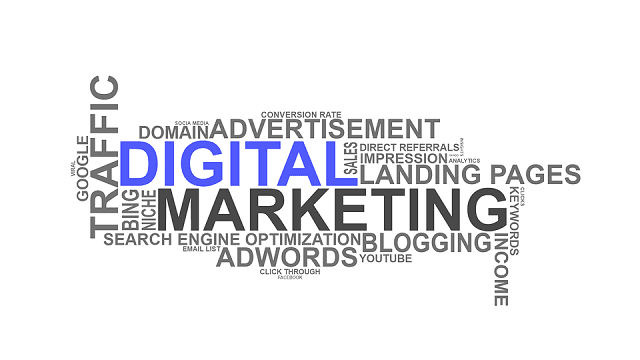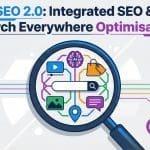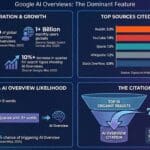Pros and Cons of Digital Marketing vs Direct Marketing
- 1 What is Direct Marketing?
- 2 What is Digital Marketing?
- 3 What Makes Digital and Direct Marketing Effective?
- 4 Benefits of Digital Marketing over Direct Marketing
- 5 Digital Marketing: A Strategy for Success
- 6 The Important Role of Social Media in Marketing Strategies
- 7 Does Direct Marketing Still Matter in the Digital Age?
- 8 Leveraging Customer Data
- 9 Combining Traditional and Digital Marketing Channels
- 10 Opace and Digital Marketing

Similar but with subtle, and important, differences, do you know what kind of marketing approach gets the best results?
Closely related, but direct and digital marketing are two terms that refer to similar methods of achieving greater brand awareness and delivering more customers, but there are some subtle differences.
We take a quick look at what separates these two techniques and find out some of the benefits that digital marketing has over the more traditional approach of direct marketing.
Editor’s Note [10.12.24]: First written on 5th July 2019 and previously updated on 3rd September 2024, this article has undergone another refresh to incorporate new insights on aligning digital marketing and direct marketing. These additions tie into our latest article on micro-moment marketing, using strategies such as “I want to buy” or “I want to go” and offer a deeper dive into pivotal customer touchpoints. The updated content aims to provide clearer, more actionable advice while remaining relevant in the fast-paced world of marketing.
What is Direct Marketing?
Also known as direct response marketing, direct marketing is a method in which the customer gets communicated with directly.
Usually, this is via targeted television adverts, text messaging, cold-calling or through mailshot promotions.
Advertising agencies can also use traditional print media in newspapers and magazines or physical display advertising such as posters, banners etc.
What is Digital Marketing?
Digital marketing refers to the practice of using any form of marketing in which the principal media is digital.
This primarily relates to online marketing using the Internet but can also incorporate mobile phones and other formats.
Digital marketing can take the form of targeted (and direct) marketing through the use of Pay-Per-Click (PPC advertising), geo-targeting for display adverts, and pop-ups.
Digital marketing also covers the very specific methods of capturing traffic through search engine optimisation (SEO), content marketing, and social media.
![What is the difference between digital marketing vs direct marketing - digital marketing vs direct marketing [updated] What is the difference between digital marketing vs direct marketing](https://b3714387.smushcdn.com/3714387/wp-content/uploads/2019/03/what-is-the-difference-between-digital-marketing-vs-direct-marketing.jpg?lossy=2&strip=1&webp=1)
Digital marketing is a powerful and instantaneous way to reach your audience.
What Makes Digital and Direct Marketing Effective?
Both digital and direct marketing have their own strengths, but success lies in using the right approach for your goals.
Digital marketing thrives on online platforms like social media, search engines, and websites. It enables businesses to connect with target audiences through precise segmentation and tailored messages. Meanwhile, direct marketing relies on more personal approaches, like direct mail campaigns or email marketing, where messages are crafted for specific individuals.
When implemented properly, both direct marketing and digital strategies can drive sales, build brand awareness, and create direct interaction with potential customers. However, digital channels often provide more measurable results, letting businesses track conversion rates and optimise their marketing campaigns accordingly.
Benefits of Digital Marketing over Direct Marketing
Digital marketing offers businesses and organisations a fast and effective way to reach large audiences.
Not only that but the success (or failures) of any digital marketing is far easier to quantify using powerful analytics to accurately measure performance.
Digital marketing not only offers the traditional benefits of increasing brand visibility, generating additional customers and creating loyalty and trust but it can also help you to:
- Engage directly with your audience and develop relationships.
- Help build credibility within your industry.
- Keep your customers informed.
- Provide extra value to your customers.
The reporting that comes along with digital marketing is also exceptionally powerful to be able to keep track of your performance with the competition.
Together with other management reporting, these insights can inform critical decisions that could gain you a significant advantage in the marketplace.
Digital Marketing: A Strategy for Success
Delivering a powerful and impactful digital marketing strategy is all about research and planning.
Establish Business Objectives and KPIs
The first thing that your business must do is to identify the objectives you want to achieve and establish some KPIs by which you can monitor the progress of your campaigns.
Collect Existing Customer Data
Next, you will need to take stock of any existing customer data you have on previous campaigns and marketing exercises so you can learn from your successes and avoid making any of the same mistakes again (if there were any!).
![Digital marketing over direct marketing - digital marketing vs direct marketing [updated] Digital marketing over direct marketing](https://b3714387.smushcdn.com/3714387/wp-content/uploads/2019/03/digital-marketing-over-direct-marketing.jpg?lossy=2&strip=1&webp=1)
Get your message heard by more people using digital marketing.
Identify Needs and Wants (Consider “Micro-Moments”)
Now for the important part; identifying your audience and understanding what they want.
Market analysis is a vital step in achieving the highest levels of success for your digital marketing campaign. Those businesses that remember the customer is at the heart of what they do will fare far better than those that forget this rule.
Understanding customer intent is crucial—whether it’s an “I want to buy” moment or an “I want to go” decision—allows you to tailor your messaging to the specific stage of the customer journey. These micro-moments are critical touchpoints where consumers turn to their marketing channels or digital platforms for quick answers and solutions.
Aligning your marketing strategy with these moments will help to ensure your campaigns resonate with your target audience and lead to immediate action.
Planning and Implementation
Then comes the nitty gritty stage; how much money and time you can commit to your endeavours and where this will be spent.
Forming the meat on the bones of your strategy will take time and potentially specialist knowledge from a digital marketing agency that can support you with tasks such as:
- On-Page and Off-Page SEO
- Content Marketing
- PPC & Paid Advertising
- Local & International SEO
- PR and Blogger Outreach
- Multimedia Marketing such as YouTube videos, Infographics, etc.
- Social Media Marketing
Finally, once you have your plan in place, be prepared not to stick to it. One of the key ingredients to success in this field is being adaptive and responsive to change.
Social media marketing has become a staple ingredient in online communication. Platforms like Facebook, X, Instagram, and LinkedIn offer unique opportunities for businesses to connect with both B2B and B2C target customers
Unlike traditional communication channels and direct marketing, social media marketing enables direct interaction with prospective clients and allows for real-time feedback which offers advantages over other forms of digital marketing like organic (SEO) and paid search (e.g. Google Ads).
That said, businesses using social media marketing can also benefit from PPC advertising (e.g. Facebook and Instagram ads), content marketing, and viral campaigns.
Strategies such as these are cost-effective and provide access to customer segments that might be harder to reach through traditional marketing efforts.
Does Direct Marketing Still Matter in the Digital Age?
While digital dominates modern marketing strategies, direct marketing campaigns still offer a personal touch that’s hard to replicate online.
Tactics like business cards, brochures, and direct mail can create lasting experiences for customers. These approaches often achieve an immediate response, making them effective for time-sensitive offers or promotions.
Think of networking events, for example; these are all about people, and the sharing of physical business information is still the most effective way to make a personal connection and drive a follow-up after the event.
Unlike digital exchanges that can be easily forgotten or lost in a sea of emails or websites, these physical touchpoints have a way of lingering—whether on a desk or in a wallet—keeping your brand top-of-mind for prospective clients.
As with digital, the secret to success with direct marketing lies in understanding customer data to craft personalised messages that communicate on an emotional level with recipients. Whether it’s a thank-you letter or a personalised promotion, these efforts show both existing and potential customers they’re valued.
Leveraging Customer Data
Data has become the backbone of effective marketing. Businesses that prioritise customer data can create personalised messages and more precise marketing strategies. For example, analysing shopping habits allows brands to tailor their marketing efforts and recommend products that align with customers’ interests.
This approach works across various direct and digital channels, from promotional flyers to social media marketing and email newsletters. It also enhances content marketing, ensuring messages feel relevant rather than generic.
A good strategy involves continuous improvement, using data to refine and adjust marketing campaigns for better outcomes.
Combining Traditional and Digital Marketing Channels
To maximise reach, brands often combine traditional channels with digital platforms. This mix ensures they can engage with diverse customer segments, catering to both tech-savvy customers and those who are more old-school and prefer tangible interactions.
For instance, a business might promote products via paid advertising on search engines while sending direct mail to loyal customers. This dual approach strengthens brand awareness and creates multiple touchpoints, improving the likelihood of conversions.
Consider different media formats, including both long-form and short-form content based on the message you are trying to convey.
At its core, marketing is about creating connections. Whether you’re using digital channels or direct mail campaigns, the goal is to increase reach, foster trust and build loyalty.
By focusing on the needs of your target audience and delivering value, you create long-lasting relationships that benefit both your customers and your business.
Opace and Digital Marketing
Opace is a specialist digital agency based in Birmingham and we work with clients of all shapes and sizes to help establish and deliver digital strategies that drive measurable results.
From digital content creation and SEO services to PPC management and social media marketing, we offer some of the most effective strategies and services to guarantee your business stays ahead of the competition while achieving tangible growth and stronger customer relationships.
To find out how we can help, contact Opace today.
Image credits: Pixabay/typography images, Pexels, and Mohamed_Hassan/Pixabay
« Back to Glossary Index





